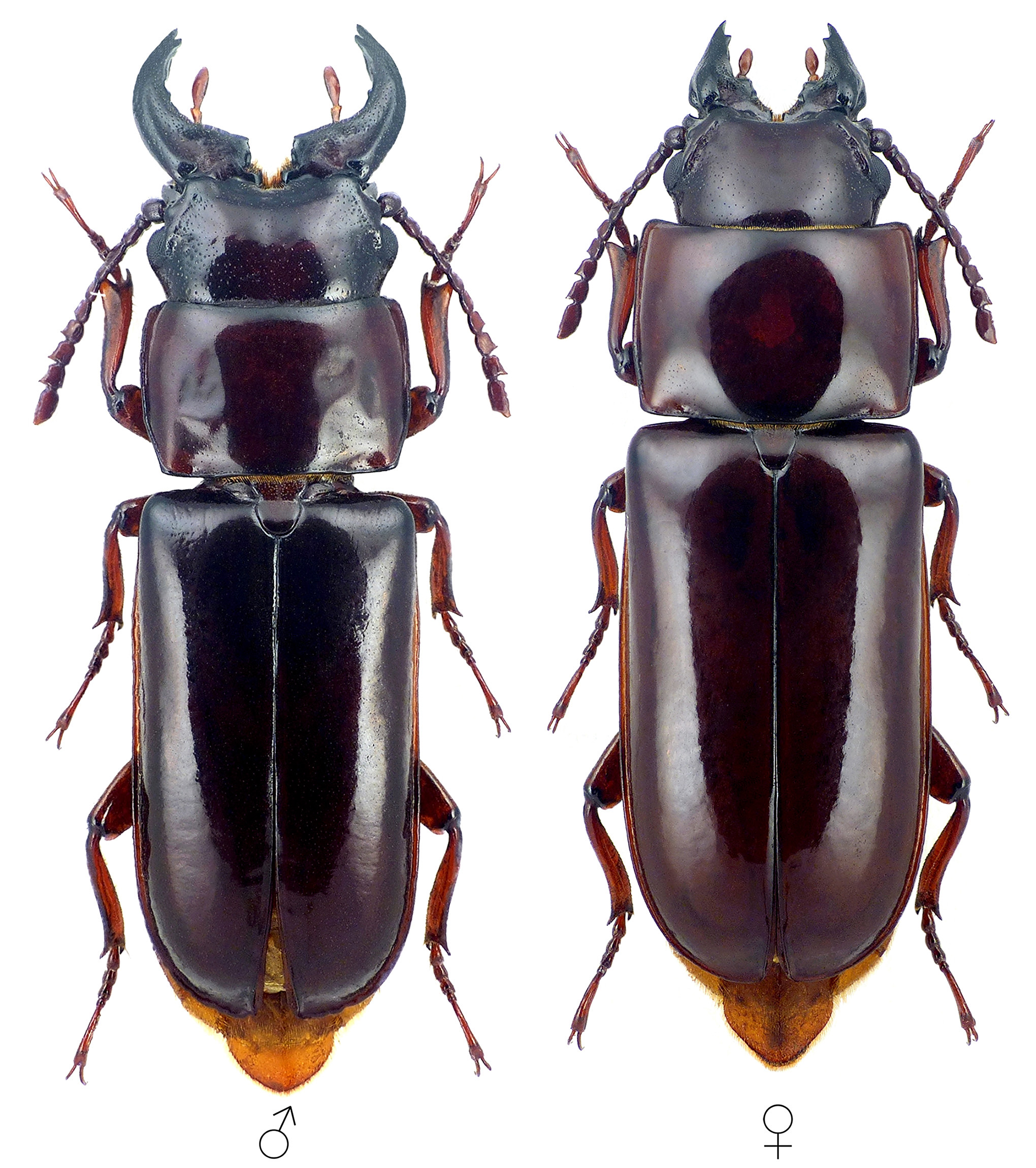[= Parandra caspia Ménétriés, 1832]
Subfamilia: PARANDRINAE / Tribus: PARANDRINI

[Photo © David Navrátil & 8K postprocessing Michal Hoskovec]
Archandra caspia, one of two species of the archaic subfamily Parandrinae known from the Western Palearctic, was described from the Caspian coast (Lenkoran environs, Azerbaijan) as Parandra caspia by Edouard Ménétriés in 1832 [✳]. A. caspia in Iran shows a very interesting life history. The primary sites of attack are 2 years dead standing alders (Alnus) of large diameter growing on the bottom of shady brook and river valleys. Such trees when recently dead are first attacked by other wood boring insects and these start their development under the thick bark. During the next winter insectivorous birds search for the half grown larvae penetrating the thick bark. Next season in about June to July at night adult Archandra search for such trees and gather there. They use the openings in the bark to penetrate under it. Regularly a male and female find together a convenient opening and creep under the bark. There they create a large oval place where copulation occurs. The pair proceeds then to mine the wood and soon enters the hardwood where the female oviposits. A huge dead alder can support a colony of Archandra for many years. The adults do not need to leave the trees for many subsequent years. The species is relatively polyphagous.
The subgenus Archandra Lameere, 1912, where the taxon has been included for a long time, was elevated to the genus by Antonio Santos-Silva in 2002 [✧].
Body length: 10 - 22 mm Life cycle: at least 3 years Adults in: May - September Host plant: polyphagous in deciduous trees (Alnus, Quercus, Carpinus, Salix, Populus, Gleditsia, Fagus, Tilia) [✳] Distribution: Talysh (Azerbaidjan), Nagorno-Kharabakh [❖], Iran
Depicted beetles were collected in Yaneh Sar (Golestan province, Iran) by V. Skoupý on June 21, 2009.
[✳]
Ménétriés E.:
Catalogue raisonné des objets de Zoologie recueillis dans un voyage au Caucase et jusqu'aux frontières actuelles de la Perse entrepris par ordre de S. M. L'Empereur.
De Imprimerie de l'Académie Impériale des Sciences, St.-Pétersbourg, 4: 1-271 [page 225], 1832. [download]
[✧]
Santos-Silva A.:
Notas e descrições em Parandrini (Coleoptera, Cerambycidae, Parandrinae)
Iheringia (Série Zoologia), Porto Alegre 92 (2): 29-52, 2002. [download]
[✳]
Danilevsky M.L.:
Longicorn beetles (Coleoptera, Cerambycoidea) of Russia and adjacent countries. Part 1.
Moscow: Higher School Consulting 1: 1-522 [pages 25-26], 36 pls., 2014. [download]
[❖]
Ghredjyan T.L., Kalashian M.Yu.:
On the finding of longhorn beetle Parandra caspia Ménétriés, 1832 (Coleoptera, Cerambycidae) in Nagorno-Karabakh.
Humanity space International Almanac 4 (5): 1090 (2015) [download]
| Subfamilia | Parandrinae Blanchard, 1845 |
| Tribus | Parandrini Blanchard, 1845 |
| Genus | Archandra Lameere, 1912 |
| Species | Archandra caspia (Ménétriés, 1832) |
